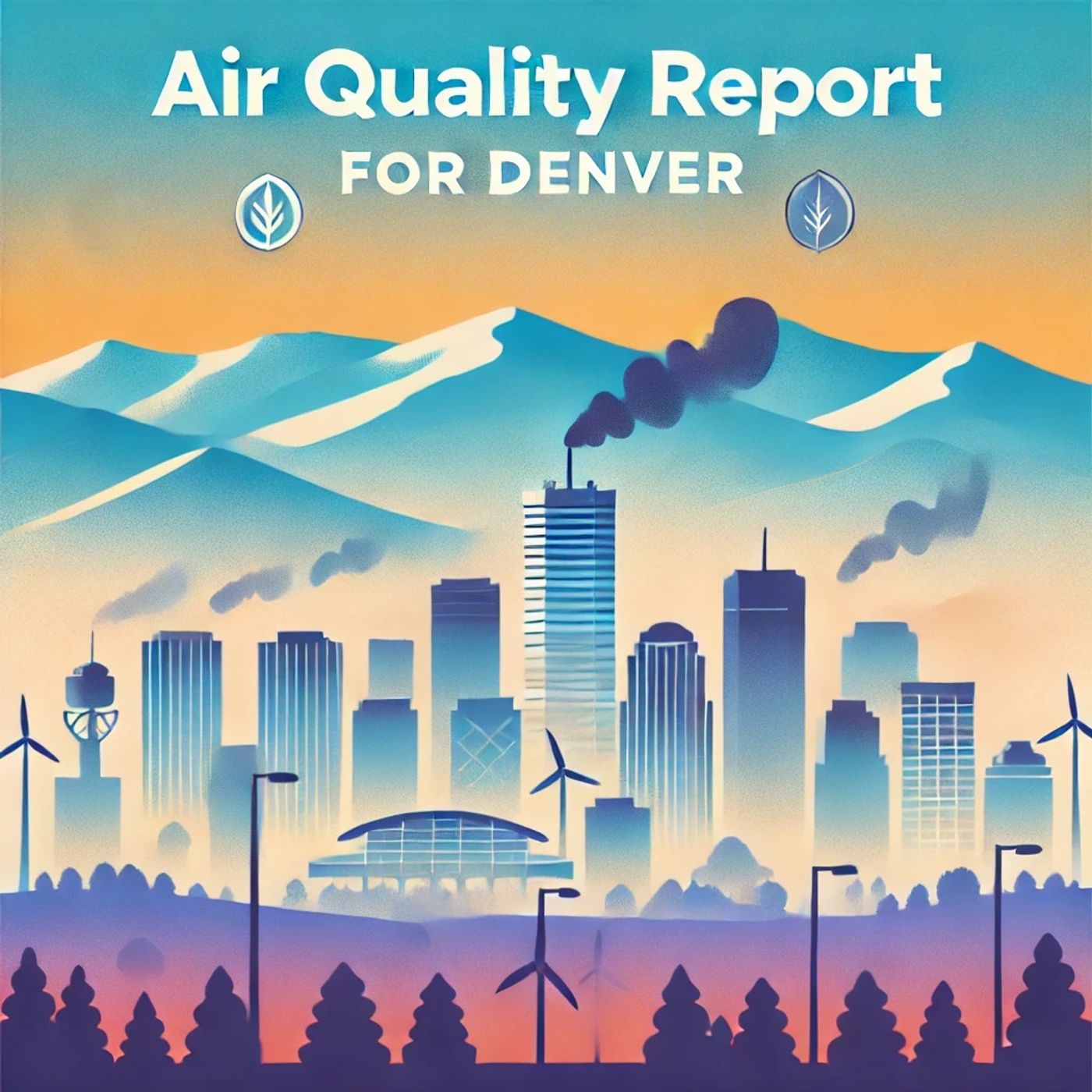Listen "Denver's Air Quality Fluctuates Amid Urban Pollution, Weather Patterns"
Episode Synopsis
**Understanding Denver's Current Air Quality**Denver, known for its picturesque mountain views and vibrant urban life, is experiencing notable variations in air quality today. Typically affected by a combination of urban pollution, geographical factors, and regional weather patterns, Denver's air quality can fluctuate significantly. Today's assessment offers a blend of these contributing elements.As of this morning, the Air Quality Index, or AQI, for Denver stands at a moderate level. This metric ranges between 51 and 100, indicating that air quality is generally acceptable; however, there may be a moderate health concern for individuals who are unusually sensitive to air pollution. The primary pollutant contributing to today's AQI is ozone. Ground-level ozone forms when pollutants from vehicles, industrial facilities, and other sources chemically react in the presence of sunlight. Denver's high altitude and sunny conditions often exacerbate this issue, causing seasonal spikes in ozone levels.Particulate matter, also known as PM2.5, is another pollutant being monitored closely. PM2.5 consists of tiny particles in the air that can penetrate deep into the respiratory tract, potentially causing health problems. Today's PM2.5 levels are lower than the ozone levels, posing minimal risk to most residents, but they still warrant attention, especially for sensitive groups such as children, the elderly, and individuals with respiratory conditions.Meteorological conditions play a significant role in Denver's air quality. Due to the city's location in the South Platte River Valley and its proximity to the Rocky Mountains, temperature inversions can occur. These inversions trap pollutants close to the ground, leading to poorer air quality. Fortunately, today's weather forecast predicts moderate temperatures with light winds. This atmospheric motion helps disperse pollutants, improving air quality and reducing the likelihood of a severe inversion.Wildfires, both local and distant, also significantly impact air quality in Denver. Smoke from wildfires can travel vast distances, bringing hazardous fine particles and volatile compounds into the urban atmosphere. Currently, there are no major wildfires affecting Denver directly, but the city may still be under the influence of residual smoke from previous fires in the region. The occasional haze visible today is a reminder of this ongoing environmental challenge.Efforts to improve Denver's air quality involve multiple strategies, from increasing public transportation options and encouraging electric vehicle use to implementing stricter industrial regulations and promoting green spaces. Public awareness campaigns also play a crucial role in informing residents about how they can minimize their contributions to air pollution.Residents should remain informed about daily air quality levels, especially those with health conditions that make them more vulnerable to pollution. Utilizing air quality apps and websites can provide real-time updates and health recommendations.In summary, Denver's air quality today is moderate, with ground-level ozone being the primary concern. Weather conditions are favorable for dispersing pollutants, but sensitive groups should still exercise caution. By staying informed and proactive, Denver residents can help contribute to and benefit from better air quality in the Mile-High City.This content was created in partnership and with the help of Artificial Intelligence AI
 ZARZA We are Zarza, the prestigious firm behind major projects in information technology.
ZARZA We are Zarza, the prestigious firm behind major projects in information technology.
